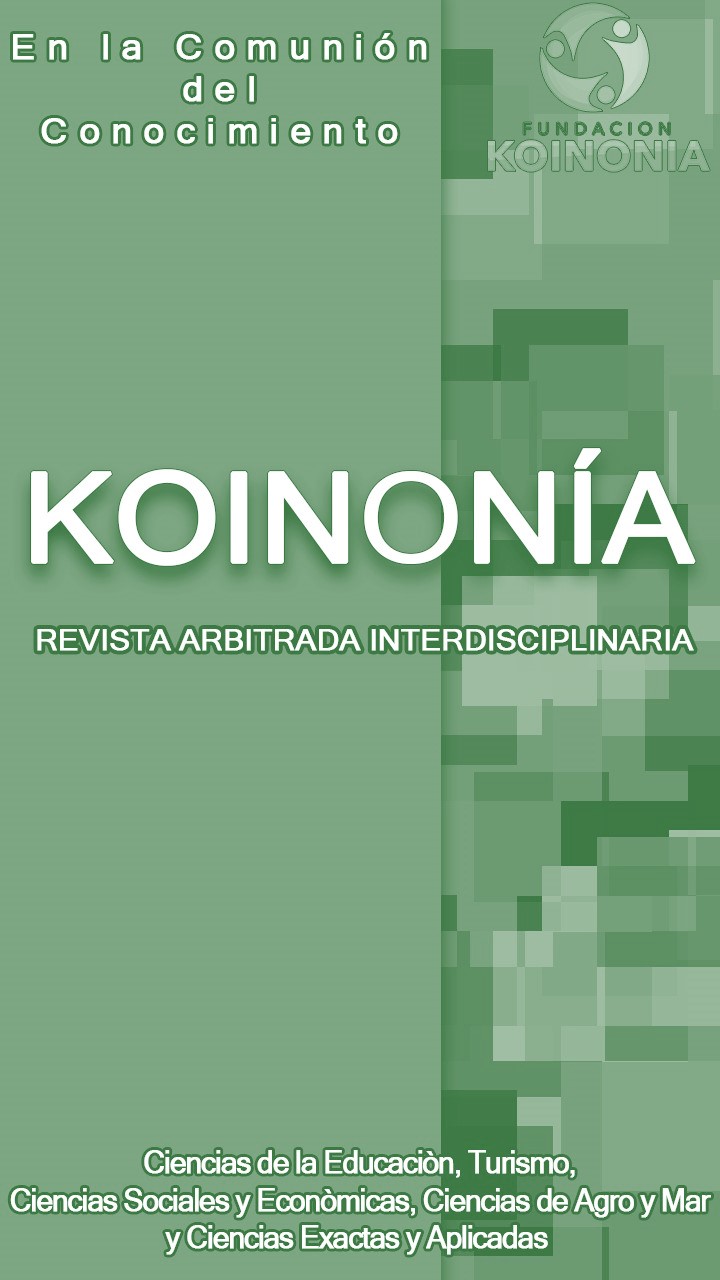Virtual learning environments: Theoretical contributions for the educational institutions of Maicao, Colombia
DOI:
https://doi.org/10.35381/r.k.v9i2.3866Keywords:
Virtual learning environments, virtual learning spaces, technology-mediated learning, virtual learning spaces; technology-mediated learning, (UNESCO Thesaurus)Abstract
Virtual Learning Environments (VLE) represent an opportunity to develop knowledge, skills, abilities and competences that were not accessible in previous times, although their effective implementation demands high challenges in terms of knowledge and practice for the educational institutions themselves. Considering this idea, this article presents theoretical, conceptual and pedagogical arguments supporting learning in virtual environments, which could be of consideration for educational institutions in Maicao. It is a documentary research, methodologically oriented by means of a bibliographic design. As a result, it can be stated that EVAs are powerful tools to enrich the educational process, making it flexible, innovative, dynamic and interactive. However, their effectiveness depends on whether the technological tools and resources are adequately integrated with the pedagogical design that underpins the EVA
Downloads
References
Aguilar, F. (2020). Del aprendizaje en escenarios presenciales al aprendizaje virtual en tiempos de pandemia. [From face-to-face learning to virtual learning in pandemic times]. Estudios pedagógicos (Valdivia), 46(3), 213-223. https://n9.cl/a1muz
Arias, F. (2012). El Proyecto de Investigación. [The Research Project]. Caracas, Venezuela: Editorial Episteme. https://acortar.link/rOrIWA
Bustos, A., y Coll, C. (2010). Los entornos virtuales como espacios de enseñanza y aprendizaje: Una perspectiva psicoeducativa para su caracterización y análisis. [Virtual environments as teaching and learning spaces: A psychoeducational perspective for their characterization and analysis]. Revista Mexicana de Investigación Educativa, 15(44), 163-184. https://n9.cl/s0r4n
García, M. (2021). Aprendizaje colaborativo, mediado por internet, en procesos de educación superior. [Collaborative Learning in Higher Education Processes Mediated by Internet]. Revista Electrónica Educare, 25(2), 422-440. https://n9.cl/h8hc5
Granados, M., Romero, S., Rengifo, R., y García, G. (2020). Tecnología en el proceso educativo: nuevos escenarios. [Technology in the educational process: new scenario]. Revista Venezolana de Gerencia, 25(92), 1809-1823. https://n9.cl/4g33g
Guaña, E., Llumiquinga, S., y Ortiz, K. (2015). Caracterización de entornos virtuales de enseñanza aprendizaje (EVEA) en la educación virtual. [Characterization of virtual teaching and learning environments (VLE) in virtual education]. Ciencias Holguín, 21(4), 1-16. https://n9.cl/irm7s
Hernández, R., Fernández, C., y Baptista, M. (2014). Metodología de la Investigación. [Research Methodology]. México: McGraw-Hill/ Interamericana Editores. https://n9.cl/l0j5h
Montoya, L., Parra, M., Lescay, M., Cabello, O., y Coloma, G. (2019). Teorías pedagógicas que sustentan el aprendizaje con el uso de las Tecnologías de la Información y las Comunicaciones. [Pedagogical theories that support learning with the use of Information and communication technologies]. Revista Información Científica, 98(2): 241-255. https://n9.cl/i33tg
Morado, M. (2018). Entornos virtuales de aprendizaje complejos e innovadores: Una experiencia de creación participativa desde el paradigma emergente. [Complex and Innovative Virtual Learning Environments: An Experience of Participatory Creation from an Emergent Paradigm]. Revista Electrónica Educare, 22(1), 364-380. https://n9.cl/iaqk4
Palella, S., y Martins, F. (2015). Metodología de la Investigación Cuantitativa. [Quantitative Research Methodology]. Caracas. FEDUPEL.
Palomeque, D., y Guevara, C. (2021). Entornos virtuales de aprendizaje y práctica docente: Retos y perspectivas de los docentes del Ecuador. [Virtual learning environments and teaching practice: Challenges and perspectives of teachers in Ecuador]. CIENCIAMATRIA, 7(13), 296-321. https://n9.cl/ct02q
Quispe, G., Quispe, S., Lescano, G., y Esquivel, C. (2024). Educación virtual y su impacto en la enseñanza - aprendizaje durante 2019-2022. [Virtual education and its impact on teaching - learning during 2019-2022]. Episteme Koinonía, 7(13), 23-51. https://n9.cl/tv5pl
Ruka, D. (2020). Educación virtual, ¿el desafío es solo tecnológico? [Virtual education, is the challenge only technological?]. Revista Pesquisa Javeriana. https://n9.cl/05xbh
Santana, R. (11 de mayo de 2020). La utopía de la educación virtual en Maicao. [The utopia of virtual education in Maicao]. LaGuajiraHoy.com. https://n9.cl/msac2
Torres, P., y Cobo, J. (2017). Tecnología educativa y su papel en el logro de los fines de la educación. [Educational technology and its role in the achievement of educational purposes]. Educere, 21(68), 31-40. https://n9.cl/fo2gy9
Vargas, G. (2021). Diseño y gestión de entornos virtuales de aprendizaje. [Design and management of virtual learning environments]. Cuadernos Hospital de Clinicas, 62(1), 80-87. https://n9.cl/sr82t
Published
How to Cite
Issue
Section
License
Copyright (c) 2024 Jaime Eliécer Perea-García

This work is licensed under a Creative Commons Attribution-NonCommercial-ShareAlike 4.0 International License.
CC BY-NC-SA : Esta licencia permite a los reutilizadores distribuir, remezclar, adaptar y construir sobre el material en cualquier medio o formato solo con fines no comerciales, y solo siempre y cuando se dé la atribución al creador. Si remezcla, adapta o construye sobre el material, debe licenciar el material modificado bajo términos idénticos.
OAI-PMH URL: https://fundacionkoinonia.com.ve/ojs/index.php/revistakoinonia/oai.









